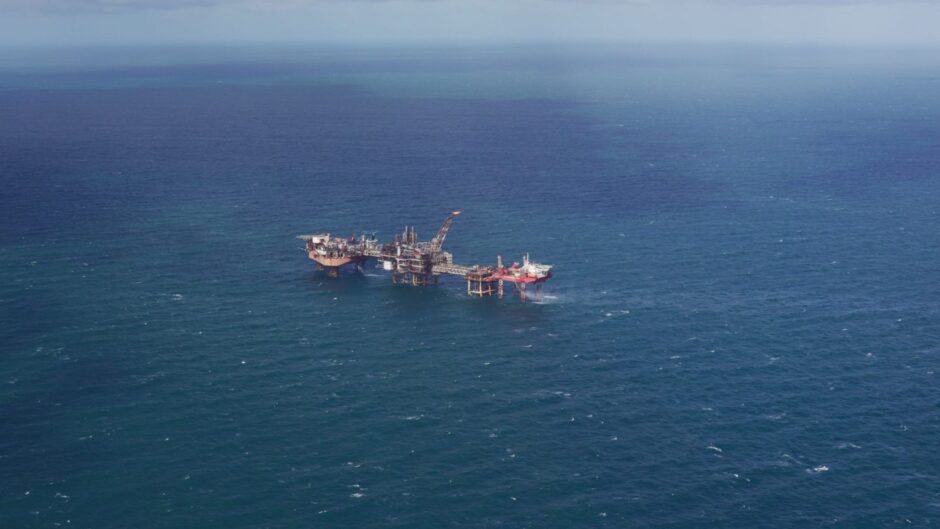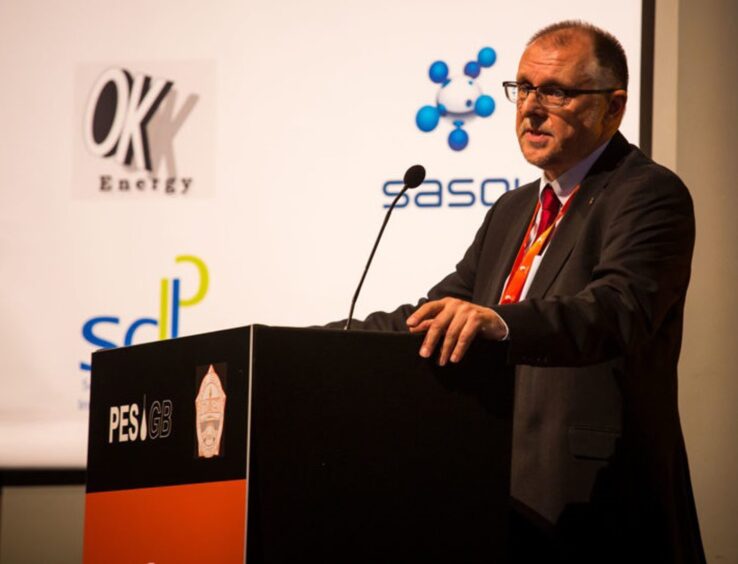
The government’s decision to allocate £21.7 billion in funding for the first two Track 1 clusters marks an important step forward for carbon capture and storage in the UK.
The only shadow, though, is the delays in reaching final investment decisions (FIDs). These had been expected in September this year, but remain elusive.
The Track 1 projects should get “over the line to FID really soon, I hope”, Kevin Dale, carbon manager at Sasol, said. Dale, speaking in his capacity as technical convenor of the CCS4G event, said other projects in the country would act as “fast followers”.
Government intervention is at the heart of the UK’s CCS industry. “At the end of the day, we’ve got to look to governments for support – and I think we’re getting that.”
Dale was speaking to Energy Voice ahead of the Geoscience Energy Society of Great Britain (GESGB) backed CCS4G event. It is due to take place in London on December 17.
The first of these events took place in 2020. Last year, there were still questions around government commitment to CCS – and crucially whether this would translate into jobs. Dale was confident that the government package would be a turning point, spurring new opportunities in the sector. “It is starting to happen now,” he said.
Government support, in the UK and beyond, “means more activities, more jobs, more opportunity for the GESGB members to pivot their careers into this new area”.
Leading plans
The CCS4G programme includes academics, such as the University of Texas at Austin’s Dr Alexander Bump and Imperial College London’s Professor Gary Hampson, with industry players, such as ExxonMobil’s Jenny Joyce and Azuli International’s Hamish Wilson.
“We’ve got international speakers and we’ve North Sea speakers,” Dale said.
One point likely to be of particular interest are the upcoming plans to begin a three-month test injection at its Leman field, in the Poseidon project. Carbon Catalyst is involved in this work, alongside Perenco, and its executive director Nick Terrell will be speaking.
The plan is to begin its tests by the end of the year. This would be the “UK’s first CO2 injection, at Leman, possibly by the time of the conference. That will reverberate with the mainstream press as well as the industry”, Dale commented.
Cross-border trade
The Leman field will be able to take CO2 from the south of England, but Perenco is also looking at taking inputs from further afield.
Dale was positive that international accord was growing for the CO2 trade. He noted the recent passage of Article 6.4, preparing the ground for an international carbon emission reduction trade.
But there is also scope for UK carbon storage to accept direct CO2 from Europe. “There’s more alignment with the EU and the UK”, Dale said, diplomatically.
The UK continental shelf has “tremendous scope and knowledge to put away CO2 that could come from those northern countries in Europe. It would be quite a challenge to send it all the way to Norway, when you could send it to the Southern North Sea in the UK. I’m sure people will be looking at that.”
The London Protocol prohibited the trade of CO2 in the past. But Dale was confident that countries were working out ways to solve this, via bilateral agreements.
“There are bilateral agreements left, right, and centre now,” he said. “The big emitters of continental Europe are looking to Norway, the Netherlands and probably Denmark as well – all around the North Sea.”
Technology vs acceptance
The technology to deliver CCS has been in place for some time and industry has demonstrated its ability to solve the challenges it has thrown up. The missing piece has been how to foot the bill.
And it’s not straightforward, particularly given the economic challenges of the UK. At a time when Chancellor Rachel Reeves has warned of a fiscal “black hole” and tightened taxes, do people accept the need for CCS?
Dale agreed the question was one of who is “footing the bill”. There is a need for balance, he argued.
“We need to decide whether we are going to continue venting [CO2] into the atmosphere for free, or am I going to do something about it? Right now, we’ve venting most of it for free and we have the capability to not do that.”
Critics of the CCS industry are gearing up, but the government’s intervention – and money – make it clear this sector will play a key role in the UK’s decarbonisation trajectory. Without CCS, net zero will be an impossibility.
As the geologists gather at CCS4G, they will have reason for optimism – even as the industry faces up to the potentially greater challenge of winning public acceptance.

 © Supplied by GESGB
© Supplied by GESGB